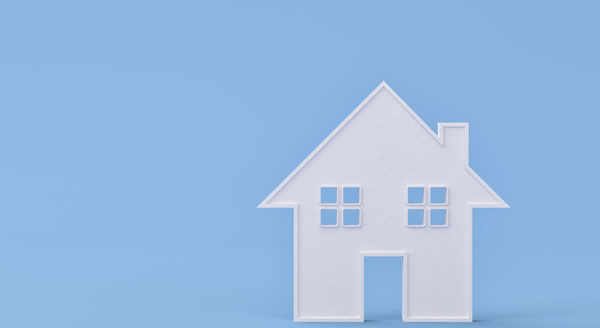

What Every Homebuyer Should Know About Closing Costs
Before making the decision to buy a home, it's important to plan for all the costs you’ll be responsible for. While you're busy saving for the down payment, don't forget you’ll want to prep for closing costs too.Here’s some helpful information on what those costs are and how much you should budget for them.What Are Closing Costs?A recent article from Bankrate explains:“Closing costs are the fees and expenses you must pay before becoming the legal owner of a house, condo or townhome . . . Closing costs vary depending on the purchase price of the home and how it’s being financed . . .”Simply put, your closing costs are the additional fees and payments you have to make at closing. According to Freddie Mac, while they can vary by location and situation, closing costs typically include:Government recording costsAppraisal feesCredit report feesLender origination feesTitle servicesTax service feesSurvey feesAttorney feesUnderwriting FeesHow Much Are Closing Costs?According to the same Freddie Mac article mentioned above, they’re typically between 2% and 5% of the total purchase price of your home. With that in mind, here’s how you can get an idea of what you’ll need to budget.Let’s say you find a home you want to purchase at today’s median price of $384,500. Based on the 2-5% Freddie Mac estimate, your closing fees could be between roughly $7,690 and $19,225.But keep in mind, if you’re in the market for a home above or below this price range, your closing costs will be higher or lower.Make Sure You’re Prepared To CloseFreddie Mac provides great advice for homebuyers, saying:“As you start your homebuying journey, take the time to get a sense of all costs involved – from your down payment to closing costs.”The best way to do that is by partnering with a team of trusted real estate professionals. That gives you a group of experts to help you understand how much you’ll need to save and what you’ll want to be prepped for. It also means you have go-to resources for any questions that pop up along the way.Bottom LinePlanning for the fees and payments you'll need to cover when you're closing on your home is important. Partnering with a local real estate professional can give you the guidance and confidence you need throughout the process.
Read More
![3 Helpful Tips for First-Time Homebuyers [INFOGRAPHIC],KCM Crew](https://img.chime.me/image/fs/chimeblog/20240323/16/w600_original_82065707-740f-4ed0-9b32-61025e85ab59.png)
3 Helpful Tips for First-Time Homebuyers [INFOGRAPHIC]
Some HighlightsTrying to buy your first home? If you’re worried about affordability today or the limited number of homes for sale, these tips can help.Look into homebuyer programs, expand your search area, and consider a multi-generational home.Connect with a local real estate agent so you have an expert on your side to help you make your dream a reality.
Read More

What Are Experts Saying About the Spring Housing Market?
If you’re planning to move soon, you might be wondering if there'll be more homes to choose from, where prices and mortgage rates are headed, and how to navigate today’s market. If so, here's what the professionals are saying about what’s in store for this season.Odeta Kushi, Deputy Chief Economist, First American:“. . . it seems our general expectation for the spring is that we will see a pickup in inventory. In fact, that already seems to be happening. But it won’t necessarily be enough to satiate demand.”Lisa Sturtevant, Chief Economist, Bright MLS:“There is still strong demand, as the large millennial population remains in the prime first-time homebuying range.”Danielle Hale, Chief Economist, Realtor.com:“Where we are right now is the best of both worlds. Price increases are slowing, which is good for buyers, and prices are still relatively high, which is good for sellers.”Skylar Olsen, Chief Economist, Zillow:“There are slightly more homes for sale than this time last year, and there is still plenty of competition for well-priced houses. Buyers should prep their credit scores and sellers should prep their properties now, attractive listings are going pending in less than a month, and time on market will shrink in the weeks ahead.”Jiayi Xu, Economist, Realtor.com:“While mortgage rates remain elevated, home shoppers who are looking to buy this spring could find more affordable homes on the market than they saw at the same time last year. Specifically, there were 20.6% more homes available for sale ranging between $200,000 and $350,000 in February 2024 than a year ago, surpassing growth in other price ranges.”If you’re looking to sell, this spring might be your sweet spot because there just aren’t many homes on the market. Sure, inventory is rising, but it’s nowhere near enough to meet today’s buyer demand. That’s why they’re still selling so quickly.If you’re looking to buy, the growing number of homes for sale this spring means you’ll have more choices than this time last year. But be prepared to move quickly since there’ll be plenty of competition with other buyers.Bottom LineNo matter what you're planning, team up with a local real estate agent to confidently navigate the busy spring housing market.
Read More

Does It Make Sense To Buy a Home Right Now?
Thinking about buying a home? If so, you're probably wondering: should I buy now or wait? Nobody can make that decision for you, but here's some information that can help you decide.What’s Next for Home Prices?Each quarter, Fannie Mae and Pulsenomics publish the results of the Home Price Expectations Survey (HPES). It asks more than 100 experts—economists, real estate professionals, and investment and market strategists—what they think will happen with home prices.In the latest survey, those experts say home prices are going to keep going up for the next five years (see graph below): Here’s what all the green on this chart should tell you. They’re not expecting any price declines. Instead, they’re saying we’ll see a 3-4% rise each year.And even though home prices aren’t expected to climb by as much in 2025 as they are 2024, keep in mind these increases can really add up over time. It works like this. If these experts are right and your home's value goes up by 3.78% this year, it's set to grow another 3.36% next year. And another 3.87% the year after that.What Does This Mean for You?Knowing that prices are forecasted to keep going up should make you feel good about buying a home. That’s because it means your home is an asset that’s projected to grow in value in the years ahead.If you’re not convinced yet, maybe these numbers will get your attention. They show how a typical home’s value could change over the next few years using expert projections from the HPES. Check out the graph below: In this example, imagine you bought a home for $400,000 at the start of this year. Based on these projections, you could end up gaining over $83,000 in household wealth over the next five years as your home grows in value.Of course, you could also wait – but if you do, buying a home is just going to end up costing you more. Bottom LineIf you're thinking it's time to get your own place, and you’re ready and able to do so, buying now might make sense. Your home is expected to keep getting more valuable as prices go up. Teaming up with a local real estate agent is a good first step to start looking for your next home today.
Read More
Categories
Recent Posts










